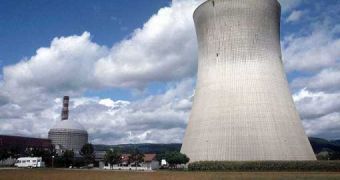Only recently, two nuclear reactors from South Korea had to be shut down by plant workers following investigations that led to their being considered “not safe.”
More precisely, the people in charge of inspecting the Yeonggwang nuclear complex had doubts as to whether or not several parts that had been fitted to these reactors were reliable. This is because some of the investigated components had fake quality certificates.
Sources inform us that, for the time being, South Korea relies on nuclear power in order to have 35% of its energy demands met.
Therefore, the closing of these supposedly faulty nuclear reactors can lead to significant power shortages, especially given the fact that the reactors will not be reopened until early January 2013.
South Korea's Economy Minister wished to emphasize the fact that, “Comprehensive safety check-ups are necessary at these two reactors where the uncertified parts were used extensively.”
Furthermore, “It's inevitable that we will experience unprecedented power shortage during the coming winter with two reactors shut. Energy authorities are preparing a super-intense power supply emergency plan, which will be carried out in mid-November.”
Economy Minister Hong Suk-Woo has stated that eight of the suppliers whose business agenda is now being investigated by police officers are guilty of having faked as many as 60 warranties, which in turn covered roughly 7.700 items.
Of these 7,700 items that lacked proper certification, more than 5,000 made their way into the nuclear reactors, which have now been shut down.
Although none of these components was part and parcel of the reactors' core structures (i.e. they were mostly fuses and cooling fans), the country's high officials agreed that it would be best to shut down all activities and carry out a more thorough investigation.
Apparently, the suppliers now found guilty of endangering public health first started manufacturing fake quality certificates for their products back in 2003.

 14 DAY TRIAL //
14 DAY TRIAL //